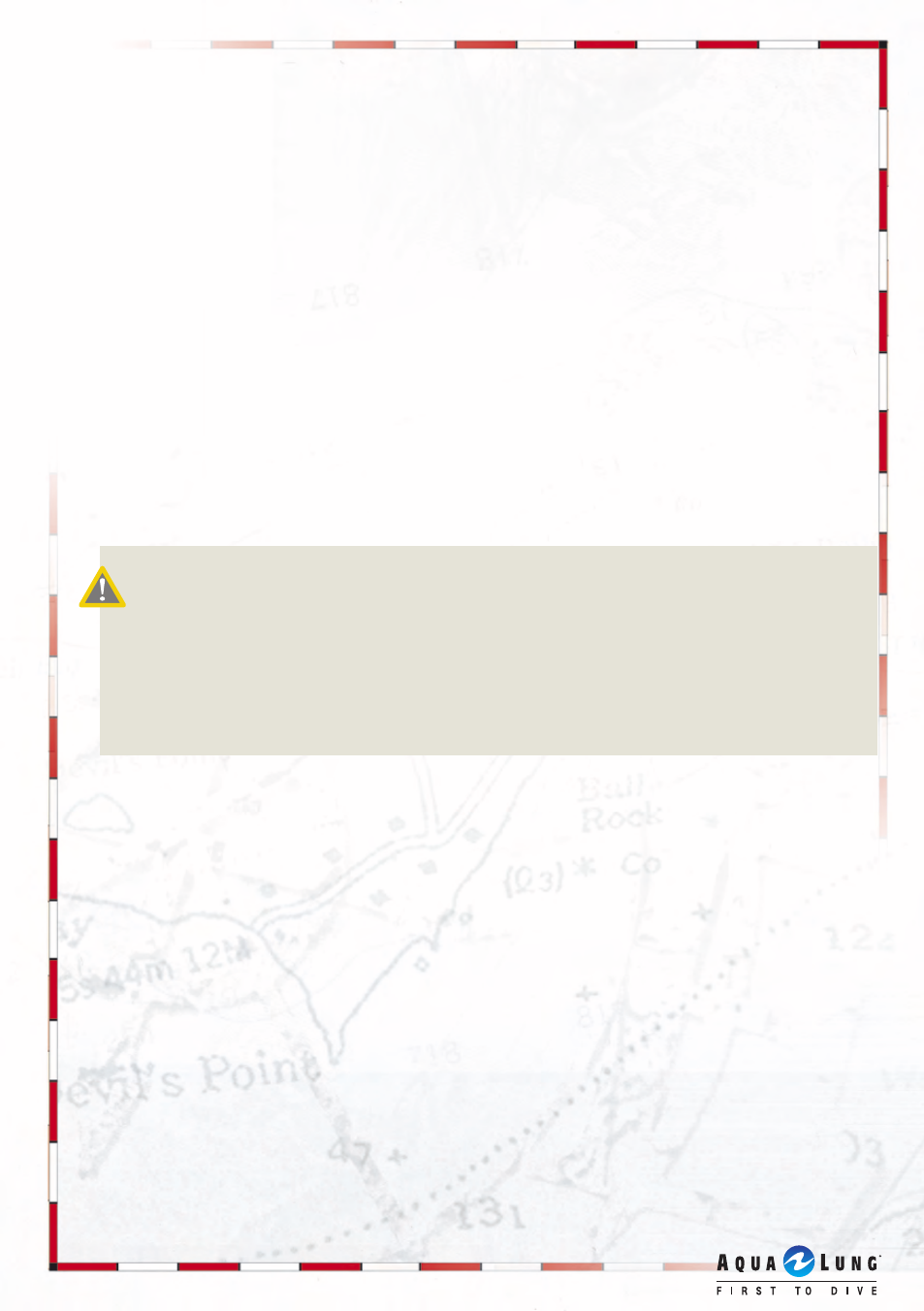1 general precaution & warnings, General precaution & warnings – Aqua Lung Regulator User Manual
Page 4

4
B a c k t o t h e c o n t e n t s
1. GENERAL PRECAUTION & WARNINGS
•
Before using this regulator, you must have successfully received training and
certification in the technique of SCUBA diving from a recognized certification
agency. Use of SCUBA equipment by uncertified, or untrained persons, is dan-
gerous and can result in serious injury, or death.
•
This regulator is not configured for commercial use with surface supplied air.
•
Always pressurize the regulator gradually by opening the cylinder valve
SLOWLY.
•
NEVER lubricate any part of the regulator (particularly the O-ring providing
the seal between the cylinder valve and the regulator) with any lubricant.
•
DO NOT apply any type of aerosol spray on the regulator. Doing so may
cause permanent damage to certain plastic components.
•
The user should not undertake any assembly, disassembly or adjustment
other than those prescribed.
WARNING
:
• DO NOT attempt to disconnect the second stage from the hose while the
regulator is pressurized.
• DO NOT perform any disassembly while the regulator is under pressure. Any
disassembly, including removing the second stage from the hose should only be
performed by an authorized Aqua Lung Dealer.
• DO NOT pressurize the regulator with the second stage disconnected from
the hose.
•
Factory prescribed service for this regulator must be performed at least
once annually by a factory trained Aqua Lung Service Technician who is
employed by an Authorized Aqua Lung Dealer.
•
DO NOT use the regulator first stage as a carrying handle when lifting or
transporting the cylinder as this can damage the regulator or the cylinder
valve.
•
When diving in cold water (below 50°F, or 10°C), you must have received
training and certification in the techniques of cold water diving from a recogni-
zed training agency.
•
If you are using a first stage in the Legend series, you are recommended to
use a compensated Octopus (LX Octopus, Legend Octopus, Kronos Octopus,
Mikron Octopus) to avoid the possibility of a free flow at depth.
